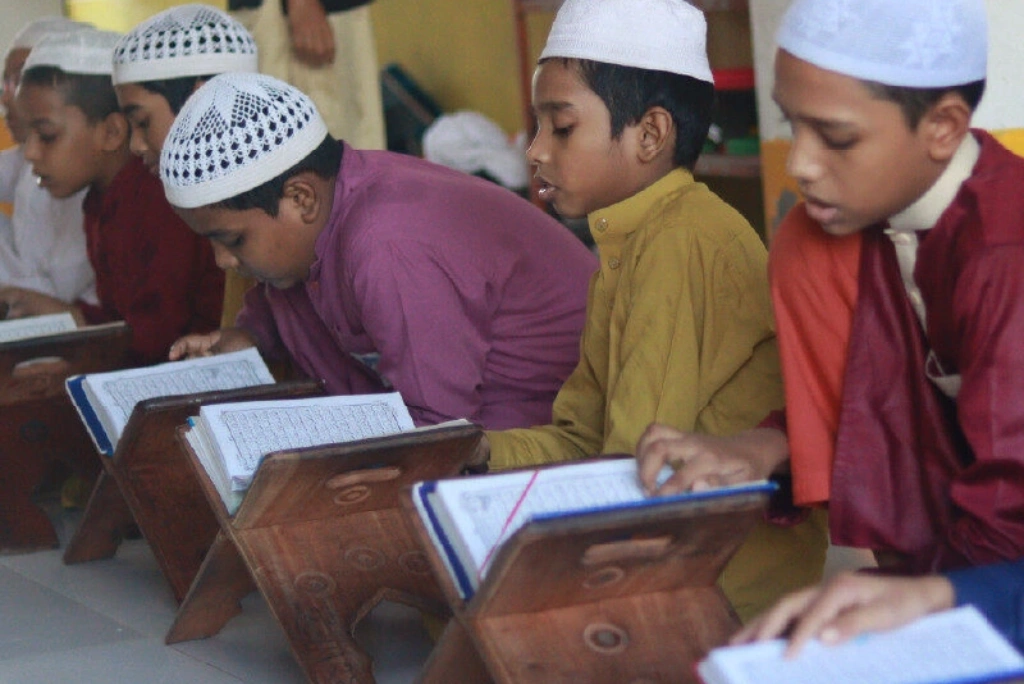Donations for Kids: How Your Support Can Change Their Lives
Children’s donations are not simply gifts. These donations serve as a lifeline for children and families experiencing hardships. Children worldwide face hunger, lack of education , and poor health. Your gifts give them the resources to grow, develop, and thrive. When you donate, you help them forge a better tomorrow. This article discusses how donations for kids are impactful, the different ways you can assist, and why every donation matters.
1. What Are Donations for Kids?
Charity donations for kids are donations to help needy children. There are many forms that these donations can take:
- Money: Contributing to organisations to help support programs that provide food, education, and health care.
- Items: Donating clothing, books, school supplies, or toys.
- Time: volunteer to teach, mentor, or organise events for needy kids.
For more information on how you can help these children, visit Good News Box.
2. Why Are Donations for Kids Important?
Donations for kids are critical, as they give them the necessary resources to flourish. Hundreds of millions of children don’t have enough to eat; they don’t go to school; they don’t have access to medical care. This program provides them with an opportunity for a better life. Your contributions help:
- Educate them: Donations provide funding for school programmes, books and teachers.
- Stay healthy: Donations help cover doctors, medicine, and health programs.
- Keep children safe: Your donations help provide safe places for kids to live.
Many of these children would still be struggling with no hope on the horizon without your donations.
3. How Donations for Kids Improve Education
Having access to education is one of the best paths out of poverty. Here is how donations for kids enhance their education:
- Helping schools: Educational institutions use donations to create more effective learning conditions, from textbooks to trained professionals.
- Scholarships: Donations are used to provide scholarships for children unable to afford education.
- After-school programmes: contributions also fund activities outside of the classroom, such as sports and the arts, which are vital to teaching children fundamental skills.
Donating to kids’ education is like giving them a key to a world of possibilities.
4. Donations for Kids: Supporting Healthcare Needs
Healthcare is a significant concern for children across various regions of the world. Kids’ donations can guarantee medical help:
- Medical Treatment: Your donations provide treatment, vaccination, and surgery.
- Health education: Contributions can help finance programs designed to teach children about hygiene and nutrition.
- Emergency care: Donations offer children immediate medical care and supplies during crises.
Healthy children will do better in school and in life. Your contributions help them stay strong and able to face the future.

5. Providing Food and Shelter Through Donations for Kids
Many do not have the basics of life: food and shelter. When you donate for kids, you help provide these essentials:
- Meals: Donations support meal programs for children in orphanages, schools and shelters.
- Safe shelters: Donations contribute to the construction and upkeep of shelters where children can find safety and love.
- Disaster relief: Amid crises, donations help provide food and shelter for children affected by the disaster.
Your donation builds a safe place where children can learn and feel secure.
6. The Role of Donations in Emotional Support
In addition to physical sustenance, kids also need emotional nourishment. Your contribution for kids helps provide:
- Mentorship programs: Children frequently require guidance as well as emotional support. Donations go toward launching mentorship programs, which provide emotional support for youth.
- Social Activities: The donations help fund activities like art, sports, and music that allow kids to express themselves and gain confidence.
- Therapy services: You can help pay for counseling for children who have experienced trauma or loss.
Emotional support can be as vital as physical requirements. It develops a balanced resilience of children.
7. How Donations for Kids Benefit Communities
When you give to kids, you aren’t just helping a child — you’re helping the whole community. Healthy, educated children become productive members of their community. They become:
- Citizens Making a Difference: Resources and time help children become knowledgeable, responsible adults.
- The economics of investment: kids who receive education and good health grow up to work, support families, and contribute to economic growth.
- Community leader: Your donations cultivate future leaders to inspire and lift others.
Your support lifts people out of poverty and strengthens entire communities.
8. Ways You Can Help: Donations for Kids
Here are some ways to donate and assist kids in need:
- Monetary donations: Contribute money to organizations that supply children with education, health care, and food.
- In-kind donations: Support orphanages or local organizations by donating goods such as clothes, school supplies and toys.
- Sponsorship: Another way to sponsor a child is through one of the many organizations focusing on providing education and meeting basic needs.
- Volunteering: You can also help kids by donating your time, mentoring, teaching , or leading events.
Every little act of kindness goes a long way in helping a child in need.
9. The Benefits of Donating for Kids
Here are the advantages of donating for kids:
- Over 90% of your donation goes directly to supplies: A donation that transforms or even saves a child’s life
- Tax deductions: Many of your donations are tax-deductible, so you’ll also help kids and get tax benefits.
- Personal fulfilment: There is a terrific sense of accomplishment and joy knowing that you’ve made a positive change to the lives of children in need.
Donating to kids is good for them and makes you feel connected to something bigger.
10. Myths About Donations for Kids
So what are some common myths that stop people from donating? Here are a few:
“My donation won’t make a difference”: Every donation, no matter how small, helps. Small donations compound and spark significant impact.
“I don’t know where my money goes”: Credible organizations disclose where donations go and what help they provide to kids.
“Donating is hard.” It’s easy to donate. You can donate money, things, or time; countless organisations have made the process easy.
Myths like these can get in the way of more children getting the help they need.
Final Thought:
Kids’ donations are critical to shaping a better tomorrow. Your support means access to education, healthcare, and the everyday essentials every child deserves. You did not donate just to help a child—your donation is making a better world for all of us. Donate today and help a child build a brighter future.
What are donations for kids?
Donations for Kids: Donations for kids are physical or monetary contributions that can help provide food, education, healthcare, shelter, and other basic necessities to young people who lack access to them.
How do I support a kid in need?
You can give money, items, or time to organizations promoting children’s welfare.
Why do we need to donate to kids?
Your donations give children the tools to thrive — schooling, healthcare, food, and emotional support.
How does donating help children have a better education?
These donations fund schools, scholarships, and after-school programs that allow children to learn and thrive.
Will my donation be tax-deductible?
Yes, many donations are tax-deductible. Just check with the charity about specifics.
How can I volunteer to assist children in need?
Yes, many organizations can benefit from your volunteering through teaching, mentoring, charity events, etc.
How do I know my donation will be well used?
Look for reputable, transparent organizations on how donations are being utilized to help children.




 Secure
donation
Secure
donation